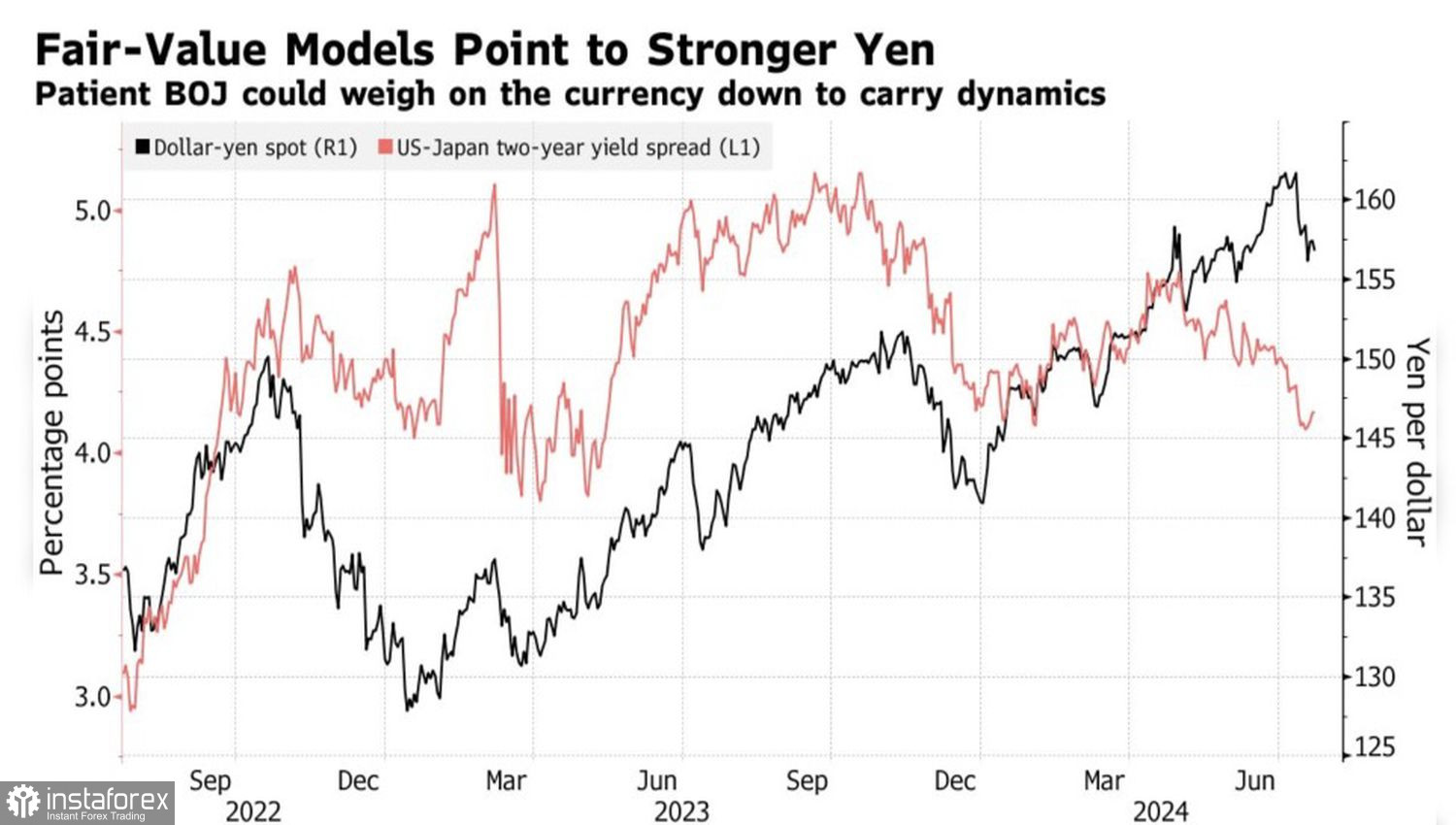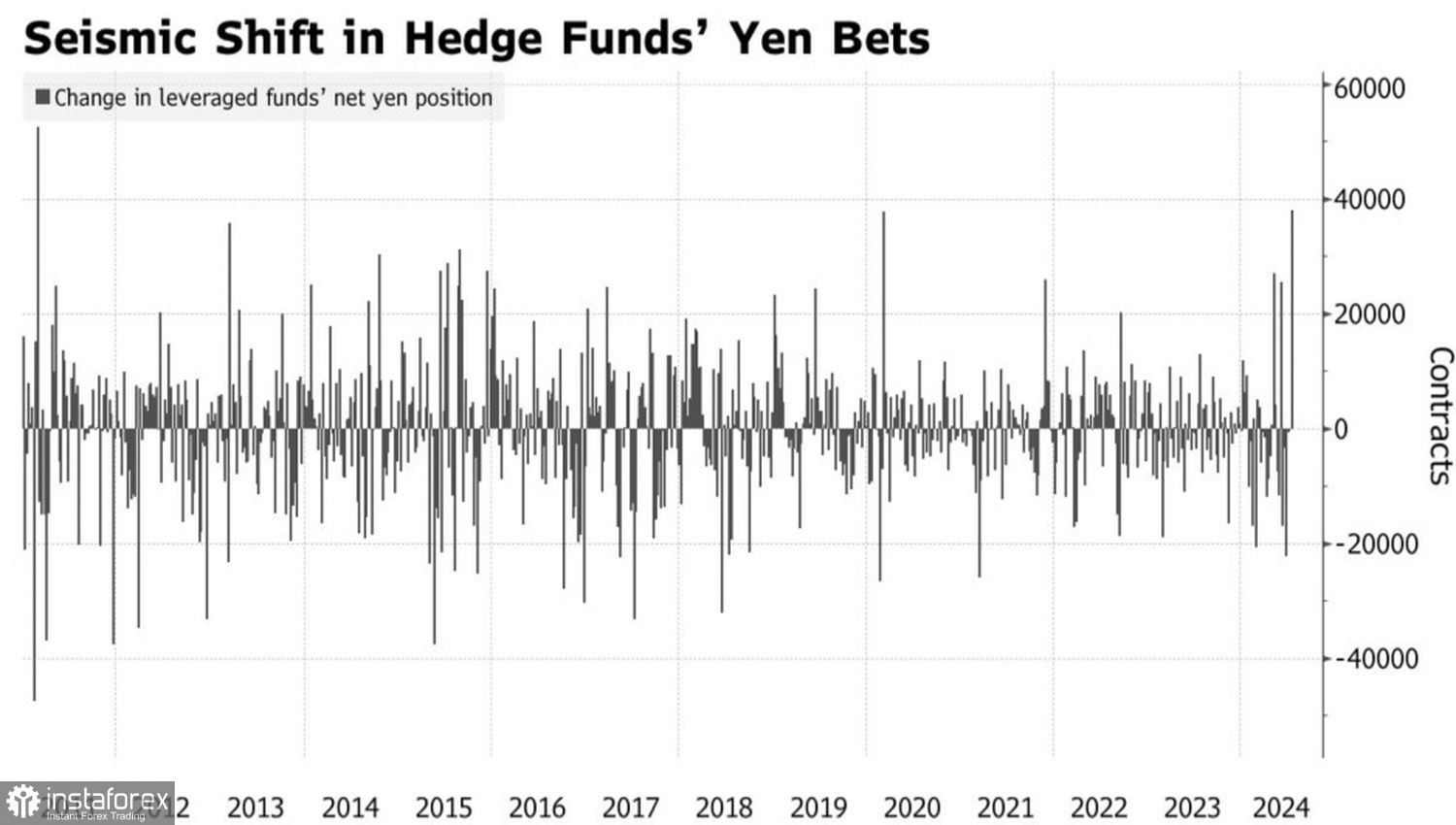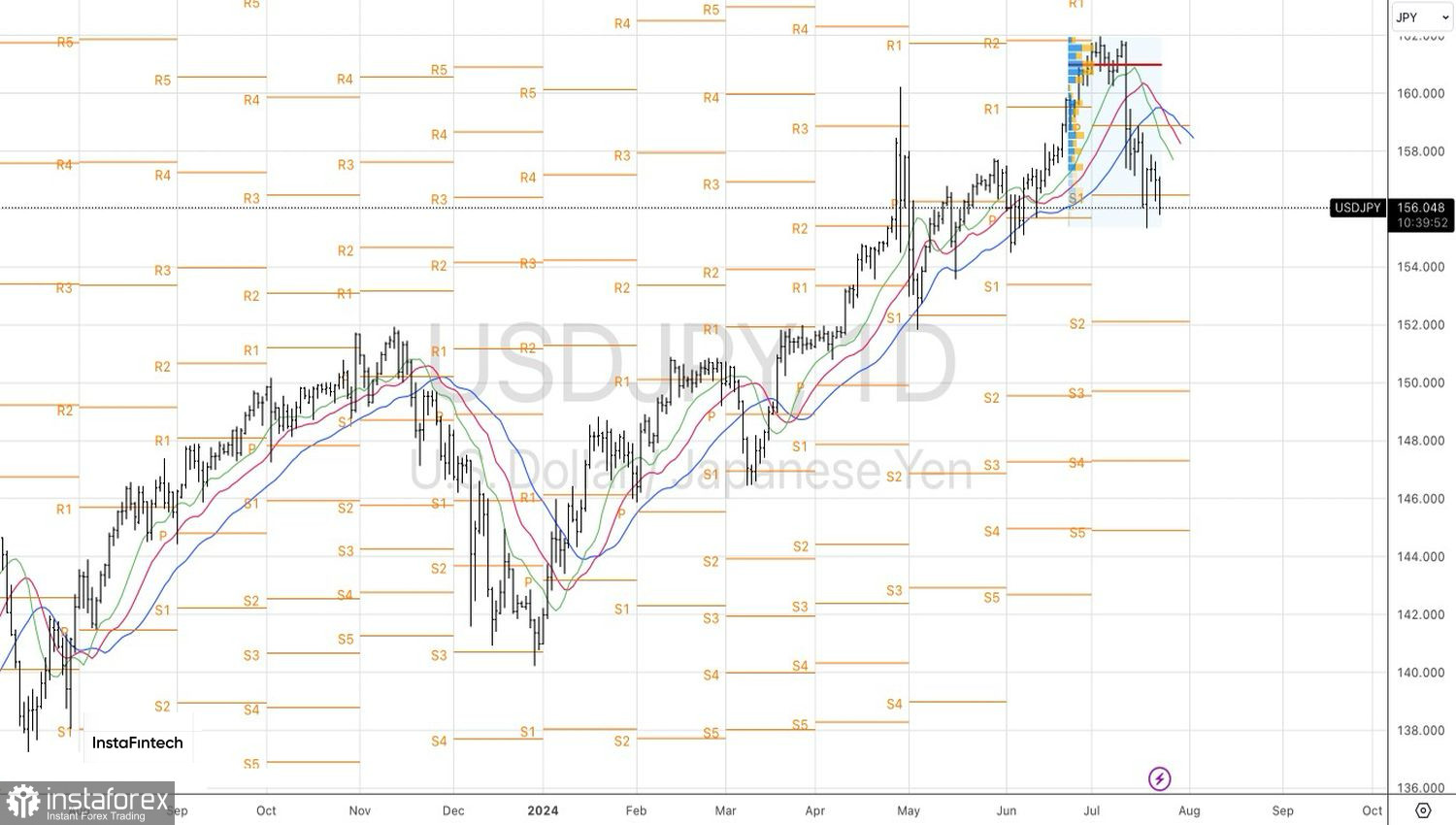Expectations of the Bank of Japan continuing its monetary policy normalization cycle at the July 31 meeting and the unwinding of speculative short positions in the yen allow USD/JPY "bears" to not fear Trump trading. The US dollar will gain advantages if the eccentric Republican returns to the White House, but the yen is not to be underestimated.
Investors fear market chaos if Donald Trump comes to power, but safe-haven assets can benefit from this chaos. China is considered to be the main victim of the 45th US president's protectionist policies. The yen will gain advantages as a reliable local asset due to the deterioration of the largest Asian economy.
The downward movement in USD/JPY is based not only on the "Japanese" status but also on the narrowing yield differential between US and Japanese bonds. The BoJ faces a tough choice. Some members of the Board of Governors believe that the economic slowdown is a strong argument for keeping the overnight rate at its current level. Their opponents are convinced that the current policy is overly accommodative and needs normalization since inflation is anchored well above the 2% target. This leads to an increase in Japanese bond yields.
Dynamics of USD/JPY and the Yield Spread of US and Japanese Bonds

According to Bloomberg insiders, the Bank of Japan's "hawks" and "doves" intend to wait until the last moment, July 31, to announce their verdict. People familiar with the matter claim that the quantitative easing program will be halved, from 6 trillion to 3 trillion yen.
Notably, government officials insist on continuing the BoJ's monetary policy normalization cycle despite lowering the economic growth forecast for the 2024 fiscal year from 1.3% to 0.9%.
Carry traders and speculators are closing positions, adding fuel to the fire of USD/JPY's plunge. For the week ending July 19, hedge funds disposed of shorts in the Japanese currency at the fastest pace since 2011. Currency interventions likely alarmed them.
Dynamics of Changes in Speculative Positions in the Yen


Thus, the yen is resilient to Trump trading due to its status as a safe-haven asset and a funding currency in carry trade operations. Meanwhile, the divergence in the monetary policies of the Fed and the Bank of Japan, amid the mass closing of speculative short positions in the Japanese currency, suggests a break in the long-term upward trend in USD/JPY.
Technically, on the daily chart of the analyzed pair, the distance of the quotes from the moving averages and fair value indicates the determination of the "bears." Short positions in USD/JPY, formed from 160.75 and increased from 158.9, should be held, periodically selling the US dollar against the yen. The targets are levels 153.6 and 152.2.





















